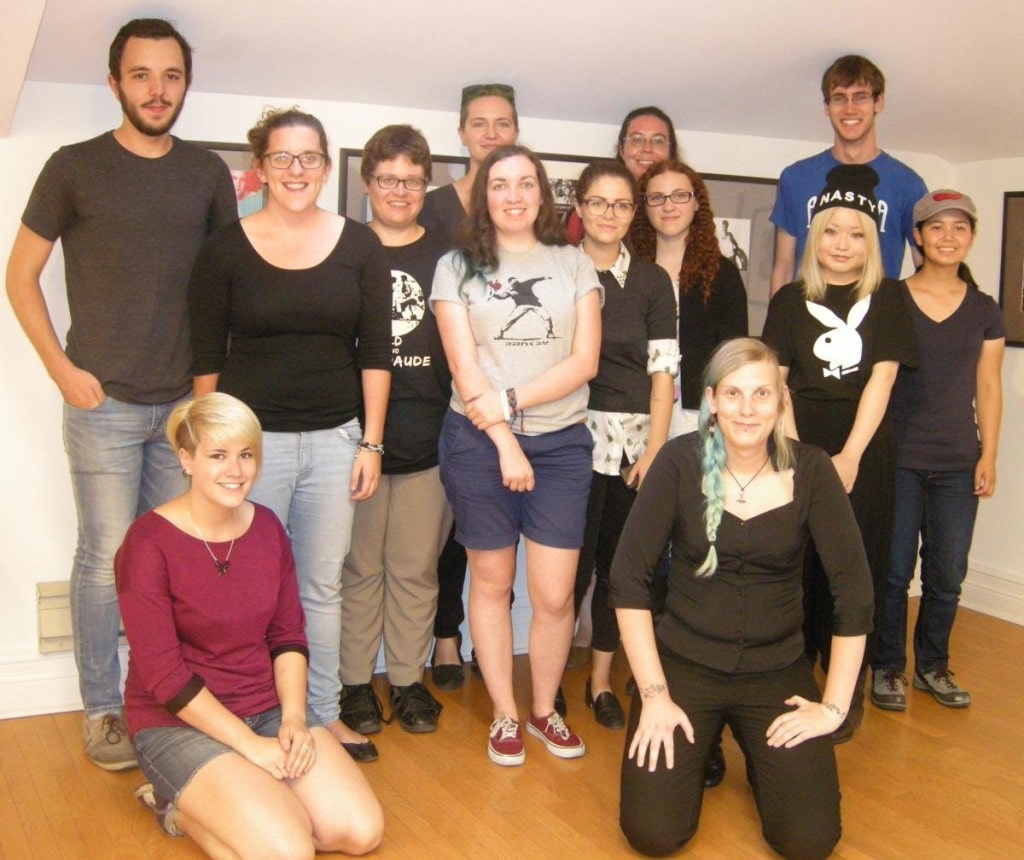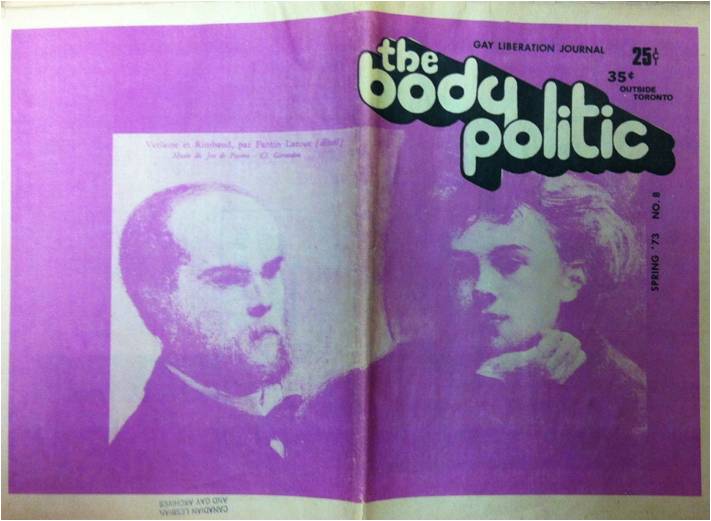 Poetry has been part of The ArQuives since 1973, when the archives was established out of the files of The Body Politic. From the pages of that gay liberation magazine came poems, book reviews, interviews, and other writing by and about lesbian and gay poets.
Poetry has been part of The ArQuives since 1973, when the archives was established out of the files of The Body Politic. From the pages of that gay liberation magazine came poems, book reviews, interviews, and other writing by and about lesbian and gay poets.Two short poems written under the name Iris appeared in The Body Politic’s first issue in 1971. More followed over the magazine’s fifteen-year run, including poems by Ian Young (BP 4) and Paul Goodman (BP 5), a “long-suppressed” erotic poem by Paul Verlaine (BP 8), articles in remembrance of W.H. Auden (BP 10 & 102), translated poems by Russian poet Mikhail Kuzmin (BP 12), an interview about Gertrude Stein (BP 59), a profile on Toronto street poet Don Garner (BP 67), poems by Dennis Cooper, George Stanley, and Gavin Dillard (BP 80), and excerpts from poet Elsa Gidlow’s autobiography (BP 83 & 111), to name a few.
Beyond the complete back catalogue of The Body Politic, The ArQuives has accumulated a large collection of poetry books and chapbooks, now stored in our James Fraser Library for reference use.
Among these books is a copy of Edward A. Lacey’s The Forms of Loss, a slim staple-bound collection of 26 poems. Published in 1965, it is often credited as the first poetry book published in Canada with explicit references to homosexuality.
The last time – a pick-up
I said “Wanna get sucked off?” he said
(it was down at Union Station)
“Yeah yeah sure! Where d’we go? You got a room?”
Boy he was eager! Just fifteen . . .
Queerer than I am . . .
Sometimes they’ll kiss you.
He had faded blue jeans, tight, light yellow hair
The ways he moved in bed . . .
You never know tho with rough trade
(from “Oneirnomancy”)
In his introduction to Seminal: The Anthology of Canada’s Gay Male Poets, John Barton points out that, according to Ian Young, Lacey’s book was published privately with the financial aid of fellow poets Dennis Lee and Margaret Atwood.
Other poets emerged from the sexual revolution and counterculture of the 1960s to write openly about their experiences and break from traditional poetic forms. One of the most experimental of these artists is poet and painter bill bissett, who began publishing out of Vancouver through his influential blewointment press.
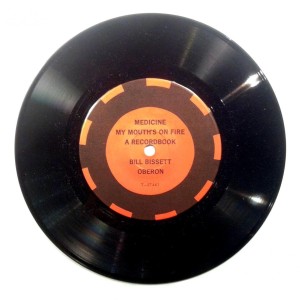 Playing on the page with irregular typography and phonetic spellings, and incorporating chants and music into readings, bissett’s poems are sensual, funny, erotic, insightful, and resistant to convention.
Playing on the page with irregular typography and phonetic spellings, and incorporating chants and music into readings, bissett’s poems are sensual, funny, erotic, insightful, and resistant to convention.Not everyone has appreciated bissett’s work. In the late 1970s his poems were attacked by several Members of Parliament who tried (unsuccessfully) to cut arts funding for what they deemed “pornography” and “a degradation to the printed word in Canada.”
Despite the controversy, bissett has gone on to publish many more poems that “have not / bin kleerd by th ministree / uv korrect thots” and continues to give readings.
The ArQuives holds several of bissett’s books, including Nobody owns th earth (1971), Polar bear hunt (1972), Stardust (1975), Pomes for Yoshi (1977), and Medicine My Mouth’s On Fire—a book of poems published in 1974 with a 33⅓ rpm vinyl recording.
Language and desire are also explored in the writing of Montreal-born Nicole Brossard, whose work has had a strong influence on poetry and feminist theory in Quebec, as well as English-speaking Canada and internationally through numerous translations. In addition to writing over thirty books, she co-founded the literary magazine La Barre du jour in 1965 and founded a feminist newspaper, Les Têtes de pioche, in 1976. Brossard has earned major honours for her work, twice winning the Governor General’s Award for poetry and receiving the National Order of Quebec.
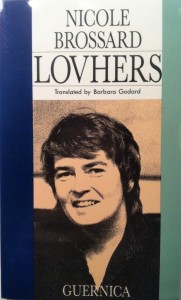 somewhere always a statement, skin concentrated
somewhere always a statement, skin concentratedsystem inverted
attentive to the phases of love, this text
under the eye: June aroused my audacity
precise lips or this allurement of clitoris
its unrecorded thought giving the body back intelligence
because each shiver aims at the emergence
June the fever the end of couples
their prolongation like the most unexpected of
silences: lesbian lovhers
the texture of identities
(from “(4): LOVHERS/WRITE” translated by Barbara Godard)
Books by Nicole Brossard held at The ArQuives include Lovhers (1986, transl. by Barbara Godard), The Aerial Letters (1988, transl. by Marlene Wildeman), and Notebook of Roses and Civilization (2007, transl. by Robert Majzels and Erin Mouré). A portrait of Brossard was inducted into The ArQuives’s National Portrait Collection in 2000.
Perhaps more influential as an activist than a poet, Michael Lynch helped to establish many important organizations, such as the Toronto Centre for Lesbian and Gay Studies, Gay Fathers, AIDS Action Now!, and the AIDS Committee of Toronto. It was also his idea to build the Toronto AIDS Memorial.
Lynch pursued an interest in poetry at the University of Toronto, working as an English professor for many years. In 1980, he collaborated with the archives to co-sponsor a conference on the centennial of Walt Whitman’s 1880 visit to Ontario. A related article on Whitman by Lynch was published in the October 1980 issue of The Body Politic, where Lynch was a regular contributor.
In 1989, Lynch released his only book of poems, These Waves of Dying Friends. Published during the rising AIDS crisis and two years prior to his own AIDS-related death, These Waves of Dying Friends is a powerful, personal account of loss and resilience in the midst of a devastating epidemic.
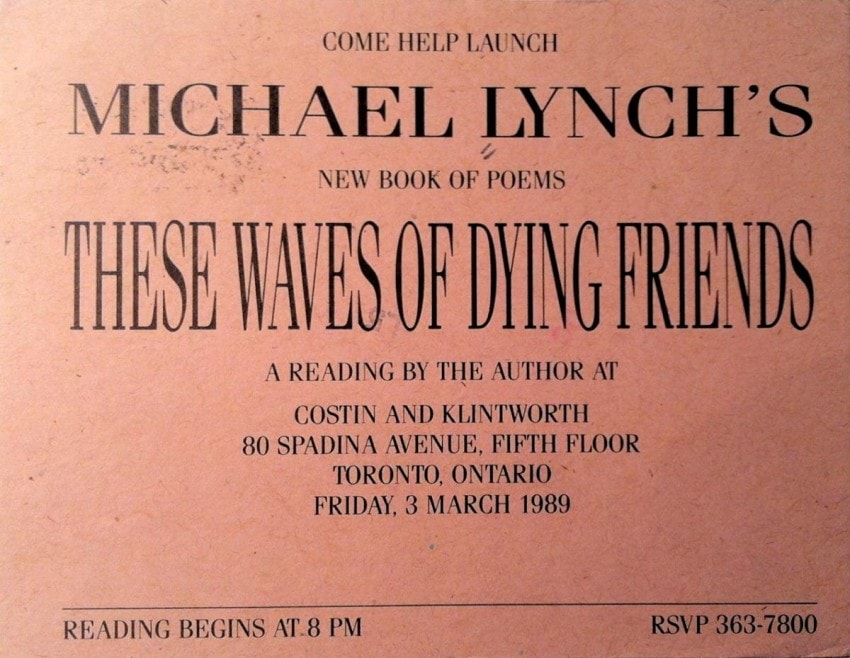 but when X is a man you often saw if seldom spoke with, one whose eyes threw sparks like a welding rod, equanimity caves in like a lung: if he, you say to the nearest chair, if he then I. Fear blows into your lung
but when X is a man you often saw if seldom spoke with, one whose eyes threw sparks like a welding rod, equanimity caves in like a lung: if he, you say to the nearest chair, if he then I. Fear blows into your lungso you have a lung again alive with fear. You look for analogies all of which Herb rejects. Analogies
he says are far too weak to cope with this hedging of our lives but strong enough to weaken its uniqueness.
(from “Conspirators”)
The ArQuives holds a copy of this out of print volume in our rare books collection, as well as a postcard advertising the book’s launch on 3 March 1989 in Toronto. Another poem from the book, “Cry,” can be read on a plaque at the Toronto AIDS Memorial in Cawthra Square Park.
Advocacy and poetry also intersect in the work of counsellor, psychotherapist, and trans activist, Rupert Raj. A large collection of Raj’s documents from decades of work were donated to the archives in 2006, including an anthology of poetry edited by Raj, titled Of Souls and Roles, Of Sex and Gender. Compiled during the 1980s, this unpublished collection includes over 400 poems by Raj and other poets from around the world who identify as transsexual, transgender, or crossdressers.
A copy of the manuscript was displayed during The Practice of Everyday Freedom, last year’s exhibition at The ArQuives celebrating Rupert Raj and Richard Hudler’s induction into our National Portrait Collection.
An anthology on trans activism in Canada—the first book of its kind—was co-edited by Rupert Raj and Dan Irving and will be published next month. Join us at The ArQuives on May 30, 2014, for the launch of Trans Activism in Canada: A Reader.

